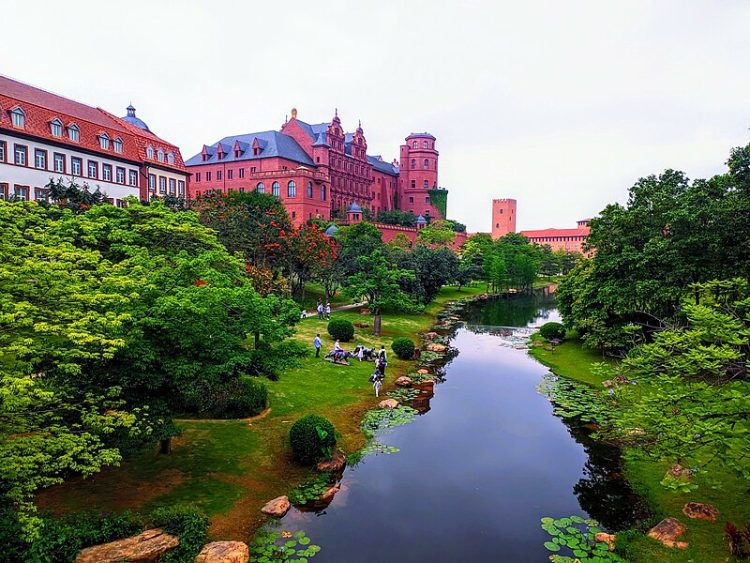Ox Horn, a sprawling research and development complex built by Huawei in Shenzen, China, features 12 towns and 100 separate buildings, all inspired by European architecture.
If someone were to be teleported in the middle of Ox Horn and made to guess where they were, China would probably be at the bottom of their answer list. That’s because the Chinese tech giant’s new campus is heavily inspired by European architecture, including both replicas of well-known Western landmarks and buildings heavily influenced by various European architectural styles. Completed in 2019 at a cost of a whopping $1.5 billion, Ox Horn houses Huawei’s main research and development offices and features its own tram transportation system, but has come under fire for its obvious European inspiration.

Photo: Wikimedia Commons
Ox Horn features a stunning replica of Germany’s Heidelberg Castle complete with a pristine replica of its Old Bridge, as well as dozens of other iconic buildings from cities like Verona and Bologna, Bruges, Oxford, and Paris. It is designed to accommodate over 25,000 people and is said to be so large that a single lap around it in the company’s proprietary tram takes 22 minutes.
Huawei has always been very secretive about its technology and R&D, so Ox Horn isn’t open to the public, although it would certainly draw crowds from all over the world. Apart from the stunning replicas of European historical buildings, there are hundreds of fountains to admire, a beautiful man-made lake complete with black swans, and even a small forest.
But despite its undeniable visual appeal, Ox Horn has attracted criticism in China because of its obvious European inspiration.
“I don’t like Huawei’s campus design,” Domus China’s editor-in-chief Yu Bing said. “All landmark buildings around the world have their own growing environment. Architecture should not be created without its regional culture. Even if Huawei’s campus copied all the European architecture, it could not copy the local environment, scenery, and folk customs, nor could it copy the local delicacies and specialties. It is just a puppet building without spiritual conception.”
China’s appetite for European culture and architecture was dubbed “Duplitecture” and took off in the 1990s when the Chinese government relaxed its rules on private property ownership. A popular example of duplitecture in China is the gated community of Tianducheng, which features replicas of Paris’ Eiffel Tower, Arc de Triomphe, and European-style villas.






